1996.08.03
Stirling interpretations
...a document centering on James Stirling's three interpretations:
Le Corbusier's Electronic Calculation Center Olivetti at Rho-Milan
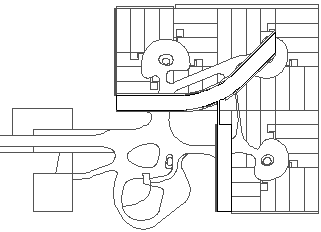 and Stirling's Olivetti Headquaters at Milton Keynes
and Stirling's Olivetti Headquaters at Milton Keynes
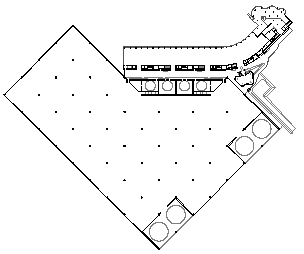 the Altes Museum/Museum for Nordrhein Westfalen connection
the Altes Museum/Museum for Nordrhein Westfalen connection
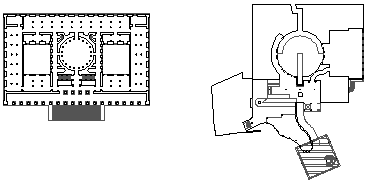 and the Wallraf-Richartz Museum promenade architecturale
and the Wallraf-Richartz Museum promenade architecturale
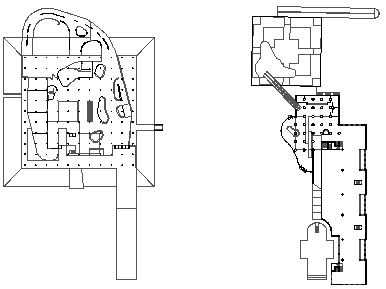 .
...the document is to exhibit a largely undisclosed circle of design influence and intentions between Schinkel, Le Corbusier, and Stirling .
...the document is to exhibit a largely undisclosed circle of design influence and intentions between Schinkel, Le Corbusier, and Stirling
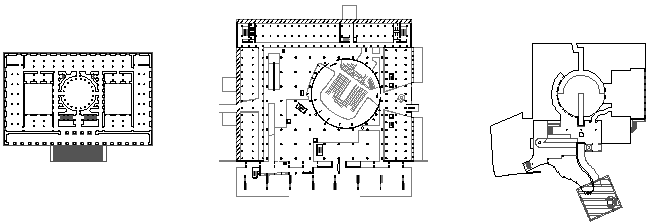 .
...connections between Stirling and Le Corbusier, and Stirling and Schinkel, but also a possible Le Corbusier/Schinkel connection in the "architectural promenade" of the Altes Museum.
...Stirling's Roma Interrotta "design" .
...connections between Stirling and Le Corbusier, and Stirling and Schinkel, but also a possible Le Corbusier/Schinkel connection in the "architectural promenade" of the Altes Museum.
...Stirling's Roma Interrotta "design"
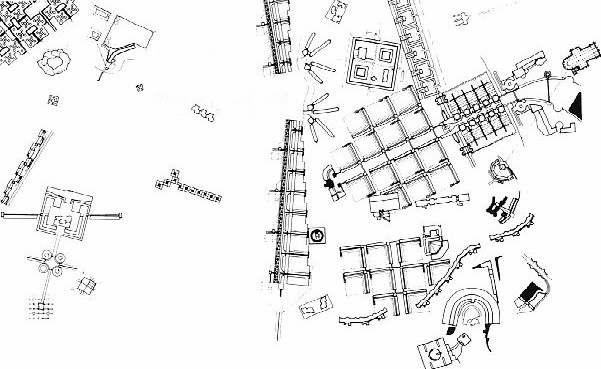 as an example of another Virtual Museum of Architecture, and another example of Stirling's art of interpretation and reinterpretation.
...the circulation sequence of the Altes Museum is very similar to the Le Corbusier's architectural promenade formula.
...how Boullée inspired the Altes Museum
as an example of another Virtual Museum of Architecture, and another example of Stirling's art of interpretation and reinterpretation.
...the circulation sequence of the Altes Museum is very similar to the Le Corbusier's architectural promenade formula.
...how Boullée inspired the Altes Museum
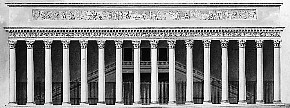 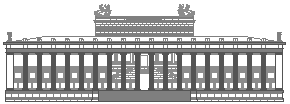 .
and this brings up the French/German crossover--cross fertilization.
Le Corbusier's Olivetti is in Milan and Stirling's Olivetti is in Milton Keyes, and both projects remained unbuilt.
Further note how inspiration for the Stirling Olivetti project that did get built .
and this brings up the French/German crossover--cross fertilization.
Le Corbusier's Olivetti is in Milan and Stirling's Olivetti is in Milton Keyes, and both projects remained unbuilt.
Further note how inspiration for the Stirling Olivetti project that did get built
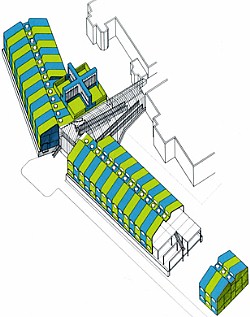 very likely came from Le Corbusier's 1940 Portable Schools for the Refugees
very likely came from Le Corbusier's 1940 Portable Schools for the Refugees
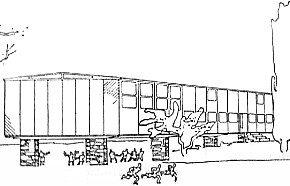 and also from the section of the Venice Hospital
and also from the section of the Venice Hospital
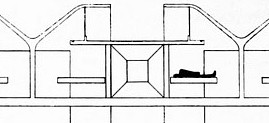 .
...the Olivetti comparisons:
the long curve of the office building .
...the Olivetti comparisons:
the long curve of the office building
 the low rise manufacturing building
the "free-form" social programmed component
the low rise manufacturing building
the "free-form" social programmed component
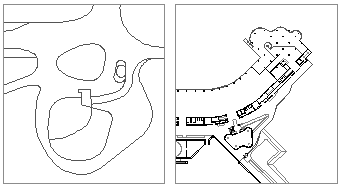 Stirling's further interpretation of the glass skin - Leicester Engineering, Olivetti Haslemere, Olivetti Milton Keyes, Museum for Nordrhein Westfalen, Wallraf-Richartz Museum - the interstitial glass bond
Stirling's further interpretation of the glass skin - Leicester Engineering, Olivetti Haslemere, Olivetti Milton Keyes, Museum for Nordrhein Westfalen, Wallraf-Richartz Museum - the interstitial glass bond
 What of the "free-form conference area under glass? Is there a precedent for this in Le Corbusier's Olivetti or any other late Le Corbusier building or project? Is it a paradigm like the stage set at Strasbourg?
What of the "free-form conference area under glass? Is there a precedent for this in Le Corbusier's Olivetti or any other late Le Corbusier building or project? Is it a paradigm like the stage set at Strasbourg?
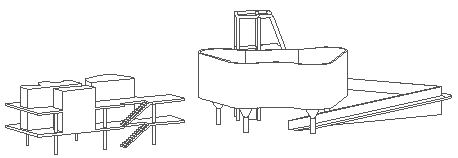
|
 and Stirling's
and Stirling's  the
the  and the
and the  .
...the document is to exhibit a largely undisclosed circle of design influence and intentions between Schinkel, Le Corbusier, and Stirling
.
...the document is to exhibit a largely undisclosed circle of design influence and intentions between Schinkel, Le Corbusier, and Stirling  .
...connections between Stirling and Le Corbusier, and Stirling and Schinkel, but also a possible Le Corbusier/Schinkel connection in the "architectural promenade" of the Altes Museum.
...Stirling's
.
...connections between Stirling and Le Corbusier, and Stirling and Schinkel, but also a possible Le Corbusier/Schinkel connection in the "architectural promenade" of the Altes Museum.
...Stirling's  as an example of another Virtual Museum of Architecture, and another example of Stirling's art of interpretation and reinterpretation.
...the circulation sequence of the Altes Museum is very similar to the Le Corbusier's architectural promenade formula.
...how Boullée inspired the Altes Museum
as an example of another Virtual Museum of Architecture, and another example of Stirling's art of interpretation and reinterpretation.
...the circulation sequence of the Altes Museum is very similar to the Le Corbusier's architectural promenade formula.
...how Boullée inspired the Altes Museum

 .
and this brings up the French/German crossover--cross fertilization.
Le Corbusier's Olivetti is in Milan and Stirling's Olivetti is in Milton Keyes, and both projects remained unbuilt.
Further note how inspiration for the Stirling Olivetti project that did get built
.
and this brings up the French/German crossover--cross fertilization.
Le Corbusier's Olivetti is in Milan and Stirling's Olivetti is in Milton Keyes, and both projects remained unbuilt.
Further note how inspiration for the Stirling Olivetti project that did get built
 very likely came from Le Corbusier's 1940 Portable Schools for the Refugees
very likely came from Le Corbusier's 1940 Portable Schools for the Refugees
 and also from the section of the Venice Hospital
and also from the section of the Venice Hospital
 .
...the Olivetti comparisons:
the long curve of the office building
.
...the Olivetti comparisons:
the long curve of the office building
 the low rise manufacturing building
the "free-form" social programmed component
the low rise manufacturing building
the "free-form" social programmed component
 Stirling's further interpretation of the glass skin - Leicester Engineering, Olivetti Haslemere, Olivetti Milton Keyes, Museum for Nordrhein Westfalen, Wallraf-Richartz Museum - the interstitial glass bond
Stirling's further interpretation of the glass skin - Leicester Engineering, Olivetti Haslemere, Olivetti Milton Keyes, Museum for Nordrhein Westfalen, Wallraf-Richartz Museum - the interstitial glass bond
 What of the "free-form conference area under glass? Is there a precedent for this in Le Corbusier's Olivetti or any other late Le Corbusier building or project? Is it a paradigm like the stage set at Strasbourg?
What of the "free-form conference area under glass? Is there a precedent for this in Le Corbusier's Olivetti or any other late Le Corbusier building or project? Is it a paradigm like the stage set at Strasbourg?
